Buying a house is relatively common in the country, but ever since the COVID-19 pandemic ravaged the world, the housing inventory hit an all-time low, and obtaining a home has become a challenge. Bidding wars are a constant theme in the real estate market, and home values are continuously increasing, almost costing as much as building a home. With this, home seekers are now opting to build new homes and customize them however they want.
According to the National Association of Home Builders (NAHB), the national average cost of building a single family home is around $296,652. Value-conscious and mid-range homes range from $100 to $200 per square foot, while luxury homes cost more. It ranges from $200-$300 per square foot, which may also increase up to $500 per square foot depending on the size, location, complexity, customization, and level of finish.
In Raleigh, North Carolina, home building costs $169-$300 per square foot. More specifically, value-conscious homes range from $169-$224 per square foot, mid-range homes range from $225-$299 per square foot, and high-end homes cost $300 per square foot and more. The median home size in the city is approximately 2,581 square feet, and it will cost around $436,189 to $774,300 to build one.
Keep in mind that these values are only estimates and are not the final answer to how much it costs to build a home in Raleigh. The total value will depend on numerous factors, besides the ones mentioned above. We have divided these factors into two separate categories: hard and soft costs.
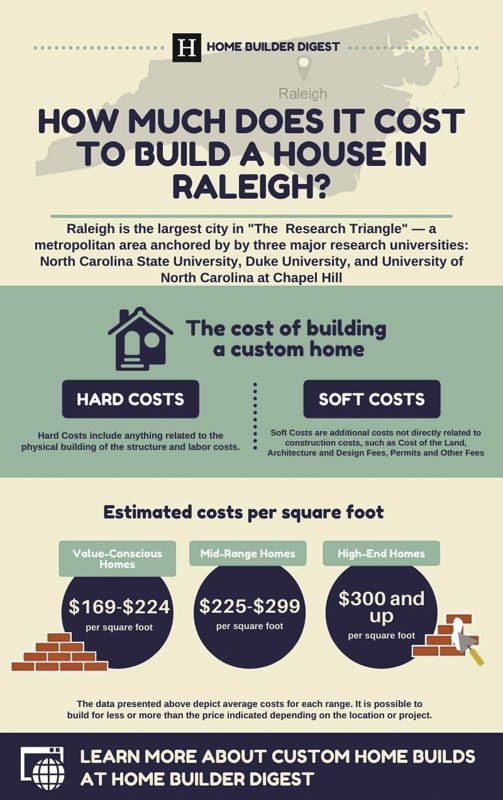
Hard Costs
Hard costs pertain to the factors that are involved in the physical building of the home. This includes the construction costs, materials, labor, and landscaping. Extra amenities or home additions are also included in this category, alongside HVAC, electrical, and plumbing systems.
The basic construction cost in Raleigh is around $151 per square foot, which is approximately $390,000 for a 2,581-square-foot home — the median home size for single family homes in the city. This estimate only considers the finished livable spaces and excludes land costs, labor, and other extra amenities. The size, complexity, and level of finish increase the basic construction costs. An additional $16,000 is also needed for the site work, which is an essential part of preparing the property for home construction. This brings the total building cost to $406,000.
Hiring a team of professionals may increase the price, but it is essential to ensuring the home is safe and durable. Labor fees are estimated to be 39% of the total building cost. According to Manta, homeowners in Raleigh paid around $10,415-$86,796, including surface preparation, cleanup fees, and needed components and machinery. Using the figures mentioned, the labor fee for a 2,581-square-foot home is around $158,340.
Installation of major systems is a must in keeping a home livable, safe, and functional. These systems include HVAC, plumbing, and electrical. Installation of HVAC systems in Raleigh costs between $4,710 – $12,155. The unit installed is enough to cool or heat a 1,500- to 3,000-square-foot home. The estimated price is only for the unit itself and does not include installation fees. Labor fees for a qualified technician cost $90-$150 per hour. Installation of plumbing systems, on the other hand, typically cost $1500 and may rise up to $15,000, as per HomeAdvisor. The total plumbing price depends on the fixtures installed and the pipes or materials used. Hiring a qualified plumber in Raleigh costs $35 to $160 per hour, depending on the amount of work and complexity of the project. Lastly, installation of electrical panels and wiring usually costs $1,098 and may rise up to $2,900, also reported by HomeAdvisor. Installation of this system can be quite hazardous, so it’s a must to hire a licensed electrician to ensure it is done correctly and safely. According to ProMatcher, labor fees of residential electrical contractors in the city cost $76.61-$100.40 per hour, excluding the parts and materials needed.
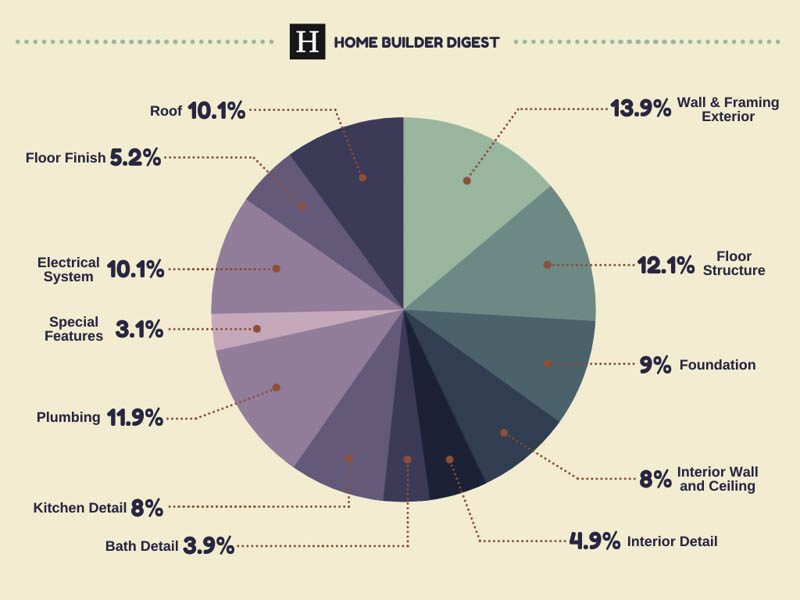
Figure 1. Typical cost breakdown of a single-family home constructed using the conventional method, according to Home Builder Digest. Image Source: National Cost Guide.
Soft Costs
Soft costs refer to the fees that go beyond the actual building of the physical home. Usually, these expenses are planned and settled before the construction begins. This category includes fees associated with land acquisition and development, authorizations from the local government, and the overall appearance and layout of the home.
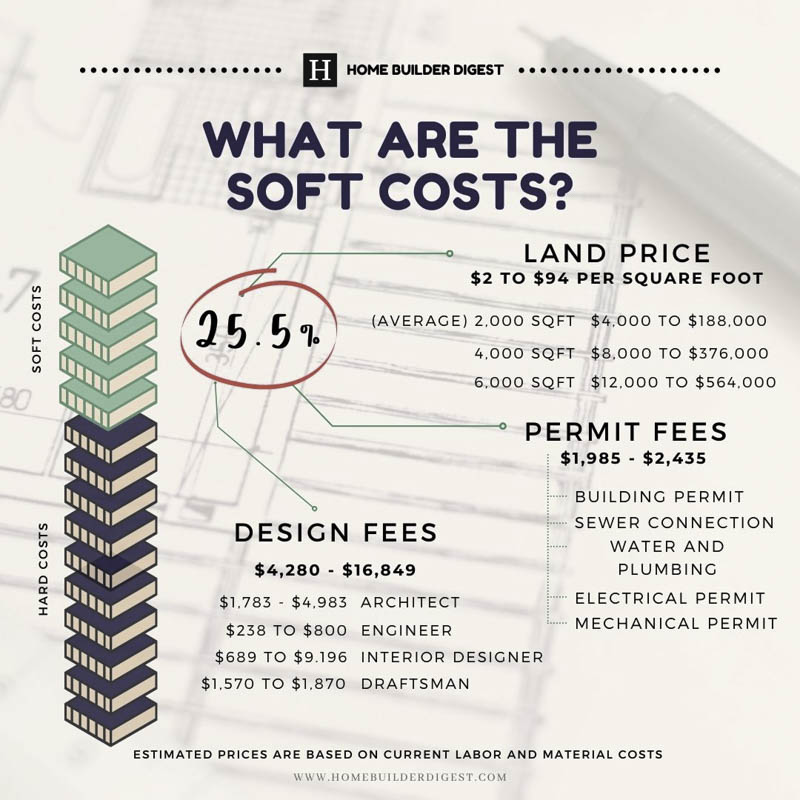
Figure 2. Soft cost percentage and average price range of additional fees, determined from the overall cost of custom home building in Raleigh.
Cost of the Land
As mentioned earlier, home costs differ depending on the location, and rural states have lower land prices compared to urban and suburban states. North Carolina is reportedly the 13th cheapest state to buy land, with a median price of $20,349 per acre.
According to recent listings in real estate market site Zillow, the median price of residential lots in Raleigh is $26 per square foot. More specifically, land may cost as low as $1.79 per square foot and as high as $93.53 per square foot. BizJournals reported that the average home size in Raleigh is 1,795 square feet which will cost you around $46,670 for the land alone.
The cost of land will also depend on what neighborhood you are in. Land in affluent neighborhoods tends to be more expensive as these areas are within close proximity to various establishments, schools, transportation, recreational activities, or natural landscapes. Some of Raleigh’s luxury neighborhoods include Hillsborough, Mordecai, Central Raleigh, Five Points, and Wade.
Permits and Other Fees
Local governments require project owners to secure a permit before doing any construction. Members of the board will review the plans submitted, and they need to determine if the project is within regulations. If approved, project owners will receive a permit that will serve as a go signal on the project. If it is declined, revisions must be made, and the plan must follow the regulations accordingly. This is a crucial step as it ensures that the structure and property are safe not only for homeowners but also for the community.
The permit fees for new residential construction is as follows, according to the City of Raleigh’s Development Fee Guide:
- Building Permit: 0.3% of calculated construction value
- Mechanical Permit: 26% of the calculated building permit
- Plumbing Permit: 32% of the calculated building permit
- Electrical Permit: 60% of the calculated building permit
- Plan Review Fee: 63% of the calculated building permit
Extra inspections are sometimes needed, and an additional $119 per inspection per trade must be settled. The valuations were derived from the latest version of the International Code Compliance Building Valuation Table. The government of Raleigh then reduced the values through the location factor.
Architecture and Design Fees
Having a thorough plan is necessary to ensure the project will be completed how every client wants it to be. Hiring an architect is a way to guarantee this while keeping the home within the regulations of the local government.
Architects and designers charge their services in three ways: percentage, hourly, and fixed rate. The percentage rate is commonly used by architectural firms, and their typical service charge for new single home construction is around 6.5 – 12% of the project’s construction cost. There are instances it may reach up to 20% depending on the complexity and the intricateness of details. Hourly rates are the most straightforward method commonly used by smaller firms. The service fee varies between $100-$250 per hour, depending on the architect/designer’s expertise and experience. A Guaranteed Maximum Price (GMP) contract is usually negotiated between the two parties to ensure that project owners stay within their budget and both are not taking advantage of each other. Lastly, fixed-rate is the least used method of design fee as every project is different. Architects and project owners negotiate a deal, and the price will depend on the scope or amount of work. Any job beyond that scope will be charged accordingly — usually at an hourly rate.
How do Raleigh’s custom home building costs compare to other nearby cities?
Homes in the country’s southern region reportedly have the lowest home value among the other areas. Homes are averagely priced at $110.19 per square foot, approximately $221,000 for a 2,000-square-foot house — almost 15% lower than the national average of $126.15 per square foot.
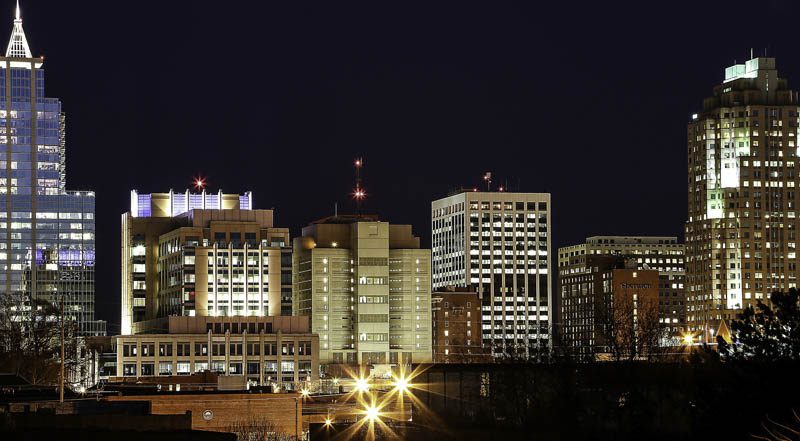
In the state of North Carolina, the value of single family homes has gone up during the pandemic. According to Zillow, the average price is now around $305,000 — approximately 24.4% higher than the previous year. This trend is consistent across the nation, including the other major cities in North Carolina, as the country faces various issues in the real estate market and construction industry. The current typical home value in towns and cities in North Carolina is as follows, together with its rate of increase as reported by Zillow:
- Cary: $558,000, increased by 29.5%
- Chapel Hill: $578,000, increased by 22.2%
- Wake Forest: $475,000, increased by 30.9%
- Durham: $379,000, increased by 29.4%
- Fayetteville: $180,000, increased by 20%
We also gathered and reviewed building permit data from the online contractor platform BuildZoom (BZ) for a more in-depth look at the mentioned cities’ home building costs; also including other major cities in North Carolina. For comparison, the average home building cost in Raleigh, according to BZ, is around $169 – $351 per square foot. The typical home building value for each town and city is as follows:
- Cary: $135 – $265 per square foot
- Chapel Hill: $183 – $405 per square foot
- Wake Forest: $175 – $268 per square foot
- Durham: $135 – $241 per square foot
- Fayetteville: $102 – $197 per square foot
- Charlotte: $178 – $327 per square foot
- Greensboro: $168 – $188 per square foot
- Winston-Salem: $123 – $199 per square foot
What Leading Custom Home Builders and Architects that Serve the Raleigh Area Say
We reached out to some of the best custom home builders and architects that serve Raleigh to gather more data and get their insights about the building costs and trends in the city.
Chris Ehrenfeld, owner, and visionary of luxury home building firm BOLD Construction shared to us that his firm’s average building costs are more than $300 per heated square foot. He expressed that the surge in construction material costs is greatly felt in North Carolina compared to the national level. Chris also stated that although the price increase in lumber is often heard in the news, it is a commodity that fluctuates daily. Additionally, almost every material and labor fee has increased and directly contributed to the recent price hike. Even if lumber prices decrease, the increasing cost of other building products and labor fees will likely continue to keep construction costs at or above the current level.
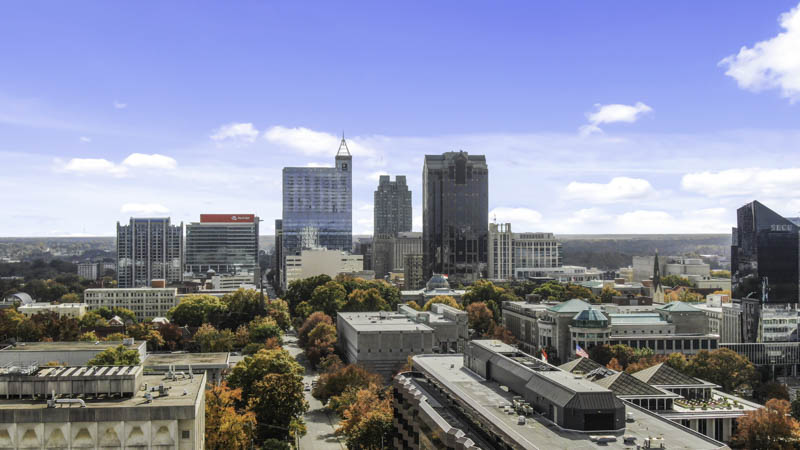
Dawn Christine Architect, a leading architectural firm in Raleigh, typically charges homeowners 3-10% of the total construction costs for its architectural design and engineering services. The firm also offers fixed price packages or hourly fees depending on the project type and scope. Dawn Christine, the firm’s owner, expressed that hiring an architect and choosing a custom design ensures that the home’s design will be fully functional and best fits the homeowner’s lifestyle. It can be quite costly, but the architectural fees vary depending on several factors, including the project’s size, complexity, design options considered, number of drawings needed, and interior design services. Dawn also explained that smaller projects usually cost more and have a higher cost per square foot compared to larger projects. Additionally, construction costs have been unstable for the past two years. Dawn advised project owners to set aside or have an additional contingency budget of 20% as preparation if the construction costs may unexpectedly rise again while the project is in the designing phase.
Louis Cherry, owner of the architectural and design firm Louis Cherry Architecture, reported that he and his firm do not have a fee schedule or set percentage. Louis shared that it is fairly difficult to define fees as every project is different. A colleague of his said that the estimated market metric is approximately $22.50 per square foot, but the price will still depend on the duration, complexity, and design process. Construction costs are continuously rising and may not revert back anytime soon. On the bright side, costs have receded from the extremes of the surge that was felt a few months ago and are somewhat stabilizing.
Design Line Studio’s principal architect, Brian L. Jones, said that home building in the triangle now costs $140 per square foot due to material shortages. This value may rise to $150-$160 per square foot depending on the material costs and bidding wars. It increased by roughly 17% compared to the previous $120 per square foot value pre-industry-related issues. Brian, including other builders, hopes that these costs will go down by 2022 as materials are finally reaching the ports. This will help in bringing down the demand pricing that is being felt. In terms of home plans, Brian shared that an intermediate home plan will cost $5000-$7000. This includes the architectural and engineering plans to be submitted when getting a permit and a custom plan ideal for the homeowners. It excludes intricate details seen in plans for higher-end custom homes. These homes cost about $18,000-$25,000 or an average of 8% of construction costs. A higher level of personalization can be done with this, including material choices, level of finishes, any interior elevations, and more.
The Future of Raleigh’s Residential Construction Industry
According to a report from CBS17 (WNCN), a common trend of house buying then demolishing can be seen in Raleigh. These people are willing to pay more with the hopes of building a new one that costs $400,000-$600,000. They are also prepared to pay any additional expenses that come with unforeseen price increases, such as materials and appliances cost. Buyers are typically from California, New York, and New Jersey, and reports say they are willing to shell out more money as real estate is more expensive in those cities. Most experts say that they are yet to see a clear end to this trend. Although this may significantly affect first-time buyers or people with average income, the good news is that lumber prices are starting to go down.
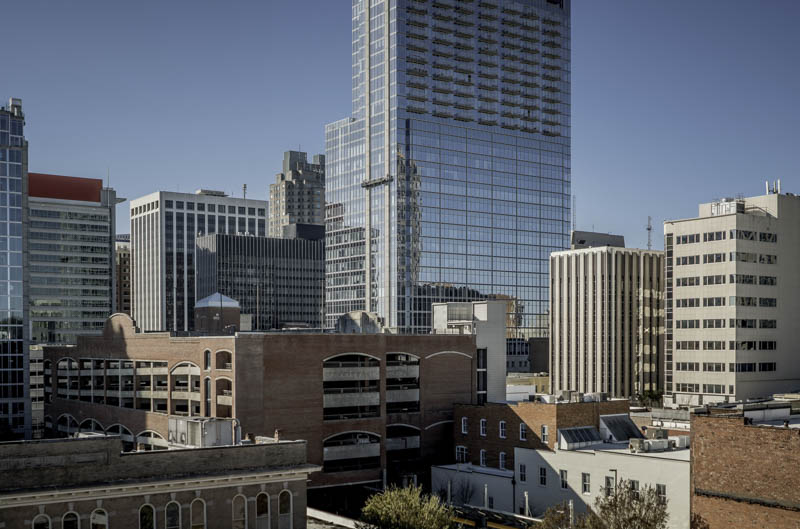
Last year, no one expected that the cost of lumber would skyrocket during the construction boom and pandemic. Chris Ehrenfeld of Bold Construction shared a report from the U.S. Census Bureau regarding the Construction Price Index. According to the report, construction costs have gone up recently by 15%. The industry recorded that the price surge was brought by supply chain issues, excessive demand in housing, and the long-running shortage of skilled labor workers. Costs are expected to continuously rise over 1% per month until issues are solved. The percentage reported is based on national numbers, and Chris expressed that a higher inflation rate can be seen in North Carolina. But what goes up must come down, as per Robert Handfield, a supply chain management expert from North Carolina State University.
Today, as the pandemic restrictions fade, materials are reaching their destinations faster, and in turn, lowers the costs. According to Fortune Magazine, the cost of lumber has dropped 27% — from $1,515 per 1,000 board feet to $1,113. Robert cautions that despite the price decrease, it is still higher than pre-pandemic pricing. “I would advise people if you’re building, hold off. Don’t do it just yet. You’re going to pay peak prices if you do it today,” Robert said. Although lumber prices are expected to continuously decrease, builders are still dealing with various issues, including the high cost of other materials and labor shortages.
Considering building a home in Raleigh?
Contact us for a free consultation
